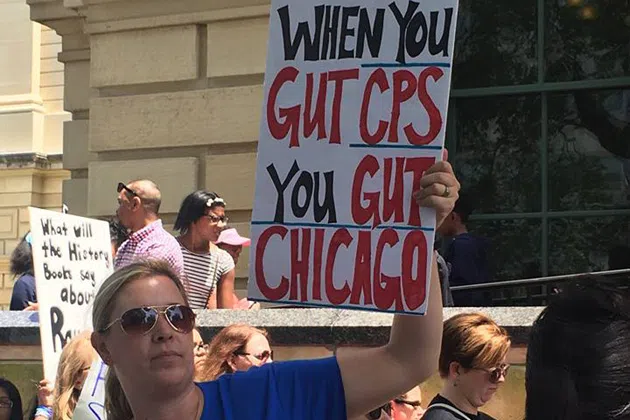
By Cole Lauterbach/Illinois Radio Network
SPRINGFIELD – State lawmakers could decide Wednesday whether to send hundreds of millions of additional tax dollars to the Chicago Public Schools, a district that has some of the highest paid teachers in the country.
According to the National Council on Teacher Quality, Chicago teachers will earn more than $2.4 million in pay and pension benefits over time. That’s the highest among the nation’s top ten school districts.
CPS has a $1.1 billion budget deficit and its pensions are underfunded by $9.5 billion.
With a median pay of nearly $79,000, CPS teachers are among the highest compensated teachers in the nation’s largest school districts, according to CPS data. According to the National Council on Teacher Quality, Chicago teachers will earn more than $2.4 million in pay and pension benefits over their careers.
CPS teachers have been operating without a contract since June 2015 and have called a number of district proposals “strike worthy.” This includes a request for teachers to pick up the portion of their own pension contributions. The district currently pays most of the teachers’ share. According to CPS records, the district has spent more than $1 billion on those contributions in the last 10 years.
State Sen. Jason Barickman, R-Bloomington, is sponsoring stopgap education funding plan that would fully fund schools at the current year levels. He says the latest Democrat spending proposals all contain the same Chicago bailouts.
“Decades of mismanagement have put (CPS) in the place that they’re in. There are many people around the state who believe that we need to adequately fund education and that we need a statewide system that benefits kids whether they’re in Chicago, the suburbs or downstate. The notion that we would bail out one district truly at the expense of kids in other districts is one that the irony is not lost on me.”
Democratic majority leader Barbara Flynn Currie said on Monday that Rauner’s proposed stopgap education budget was “wholly inadequate” not just for Chicago, but for all other Illinois schools, and that Democrats are unlikely to support it.





